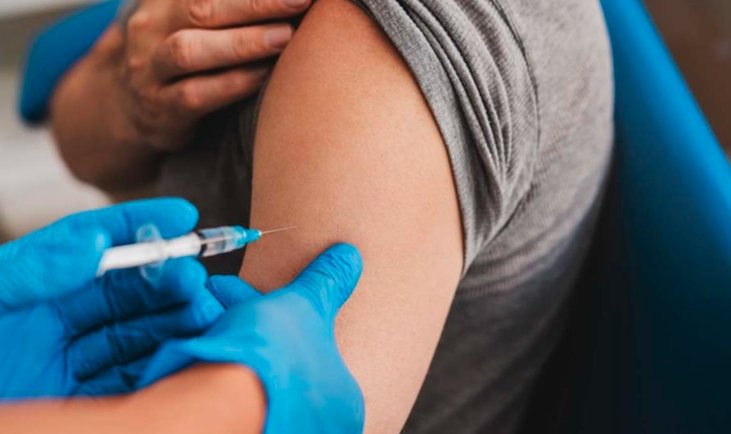A vaccine to protect high-risk groups against gonorrhoea will be made available in Scotland from August, after a sharp rise in cases and growing concerns about drug resistance.
This marks a significant move in public health strategy as Scotland confronts an alarming surge in sexually transmitted infections (STIs), particularly among younger people and marginalised groups. The rollout comes just months after similar programmes began in England and Northern Ireland.
Soaring Infections Push Scotland to Act
Cases of gonorrhoea in Scotland hit 5,999 in 2023, a whopping 59% increase from pre-pandemic levels in 2019. The illness, while often curable, can be painful and, in rare cases, lead to severe complications including infertility, pelvic inflammatory disease, or bloodstream infections.
That’s not all. Drug-resistant strains are now making treatment even harder.
The bulk of these new infections are being reported in:
-
People aged between 16 to 25
-
Gay and bisexual men
-
Individuals of Black and Caribbean descent
-
People involved in sex work
One alarming detail? The UK Health Security Agency warned earlier this year that a drug-resistant strain of gonorrhoea was identified in multiple regions, heightening concerns across public health departments.

Who’s Getting the Jab — and Why?
This vaccine isn’t for everyone. The Scottish Government has made it clear that the jab will be offered to people at highest risk. That includes gay and bisexual men, and sex workers, regardless of gender.
It’s a targeted approach, not a mass immunisation campaign.
The vaccine being used is thought to offer between 30–40% protection. Not perfect, sure — but doctors say it’s a start, especially as the bacteria becomes harder to treat with antibiotics.
It’ll be free at sexual health clinics, and NHS boards are currently drawing up local delivery plans.
Public Health Minister Jenny Minto didn’t mince her words either: “The number of diagnoses has been high and the disease is becoming increasingly difficult to treat with antibiotics. This vaccine could protect thousands and reduce pressure on the NHS.”
What the Vaccine Actually Does — and What It Doesn’t
Let’s clear something up: this isn’t a silver bullet.
Dr Sam Ghebrehewet from Public Health Scotland called the vaccine a “welcome new intervention,” not a cure-all. It doesn’t eliminate the need for safe sex or regular STI testing.
But it can help. The vaccine is based on an existing meningitis B jab called 4CMenB, which — almost by accident — seemed to provide partial protection against gonorrhoea in earlier studies. That’s how researchers stumbled onto this possibility.
Now, it’s being retooled as a focused STI-prevention tool.
Here’s what it offers:
-
30-40% reduced risk of gonorrhoea infection
-
Greater protection for high-risk groups
-
Potential to limit future antibiotic resistance
That 30–40% effectiveness might not sound like much, but in public health terms, especially when infections are growing this fast, it’s a huge deal.
A UK-Wide Push After JCVI’s Nod
The Joint Committee on Vaccination and Immunisation (JCVI) gave the green light back in November 2023. Scotland’s programme follows the lead set by NHS England, where the jab started rolling out earlier this year.
Doctors and sexual health charities were quick to support the move.
“There’s no question this vaccine is coming at the right time,” said one senior GP based in Edinburgh. “We’re seeing infections that don’t respond to standard treatments anymore. That’s scary.”
Sexual health organisations have been campaigning for months, saying the rise in STIs was a ticking time bomb, especially after stretched post-Covid services led to delayed check-ups and under-reporting.
Scotland’s rollout, though a little behind England’s, is still being seen as a major step forward.
Why Now? The Data Doesn’t Lie
Here’s a breakdown of the numbers that pushed Scotland into action:
| Year | Gonorrhoea Cases | % Increase from 2019 |
|---|---|---|
| 2019 | 3,777 | — |
| 2020 | 3,215 | -15% (Covid dip) |
| 2021 | 3,900 | +4% |
| 2022 | 4,805 | +27% |
| 2023 | 5,999 | +59% from 2019 |
That’s not a small spike — that’s a wave.
And experts say it’s not just the volume of cases, it’s the changing nature of them. Strains of gonorrhoea that resist ceftriaxone — the last reliable antibiotic — have already been flagged in the UK. That has the NHS extremely worried.
Early Reaction from Public and Professionals
There’s been a mixed but largely supportive response so far.
Some campaigners are asking why it took so long. Others are urging caution, saying the vaccine might give a false sense of security and lead to lower condom use. But most agree it’s a tool that’s urgently needed.
A community health worker in Glasgow said, “There’s a lot of misinformation about gonorrhoea. People think it’s just a ‘nuisance STI.’ But that’s outdated thinking — it can cause real harm.”
One sex worker from Aberdeen, who asked to remain anonymous, said she was relieved to hear she’d be eligible. “I just want to protect myself and not worry about being treated like I’ve done something wrong.”
And then there are younger people — the group most affected by the outbreak. Many of them haven’t even heard of antibiotic resistance. That’s why awareness campaigns will run alongside the jab rollout, starting this summer.


















